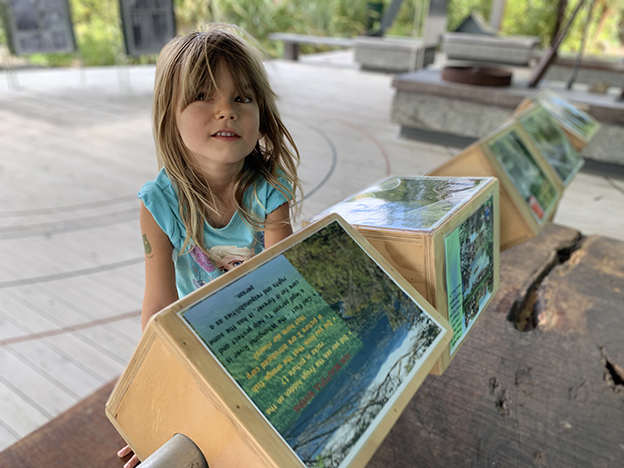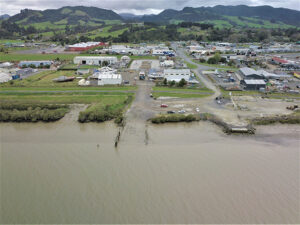Tactile play features with an emphasis on native species are a new development for the ever-evolving education offered at the Department of Conservation’s Kauaeranga Valley Visitor Centre.
The centre, about 20 minutes drive from Thames, has offered educational experiences for children of all ages for more than a decade – and with the 2022 school year underway, the learning features have been refreshed as children return to classrooms.
DOC education ranger Maree Limpus said the new features focused on both native species found in the valley and the introduced predators who threatened their ongoing survival.
“Through play and learning, we want children to have a positive experience in nature to foster ongoing enquiry, engagement and taking action to protect nature and our unique wildlife. We’ve put a particular focus on tactile play and learning for children eight years and older,” she said.
“Over summer we had a group of university students working for DOC in the valley, and their seasonal roles gave us a chance to take advantage of their skills and knowledge to help us construct and refine some new play exhibits.”
Long renowned for its beautiful setting and diverse opportunities for families and schools, the 2022 additions at the visitor centre include nature quizzes – with the option for teachers to develop their own theme-based ones, and nature pou/posts, which present children with the task of pairing wildlife facts with particular species.
The species selected for the new interactive exhibits have all been found across the wider Coromandel Peninsula at some point in time, and include wētā, geckos, dotterels, kererū, tūī, kauri, kākā and tuna.
“We really wanted to focus on the species our visitors might encounter if they enjoy one of the nearby trails or streams – that connection between learning and real-life nature experience is very important to us,” Maree Limpus said.
Another new interactive feature, the target boards, gives children a chance to knock down some of the introduced predators that have had a significant impact on Coromandel’s native wildlife.
The target boards carry pictures of possums, rats, stoats and pigs, and children use a rubber ball to test their aim against the pests. If the target is hit, the board flips back on a hinge to reveal a series of facts about the pest – and the threat it presents.
“It’s a little bit metaphorical, as our operations team oversees work to target these pests in the bush to protect the native species.”
Maree Limpus said the new resources and ongoing developments focused on getting children outside and active – and away from devices, desks, tables and chairs.
A grass maze, covering an area the size of a football pitch, blends nature-based learning and a quiz with an opportunity for children to burn off excess energy.
“We’re striving to offer a rich learning experience for everyone that visits,” she said.
“All exhibits constructed are inter-changeable to ensure they can be constantly refreshed, and the learning experience always evolves.”




